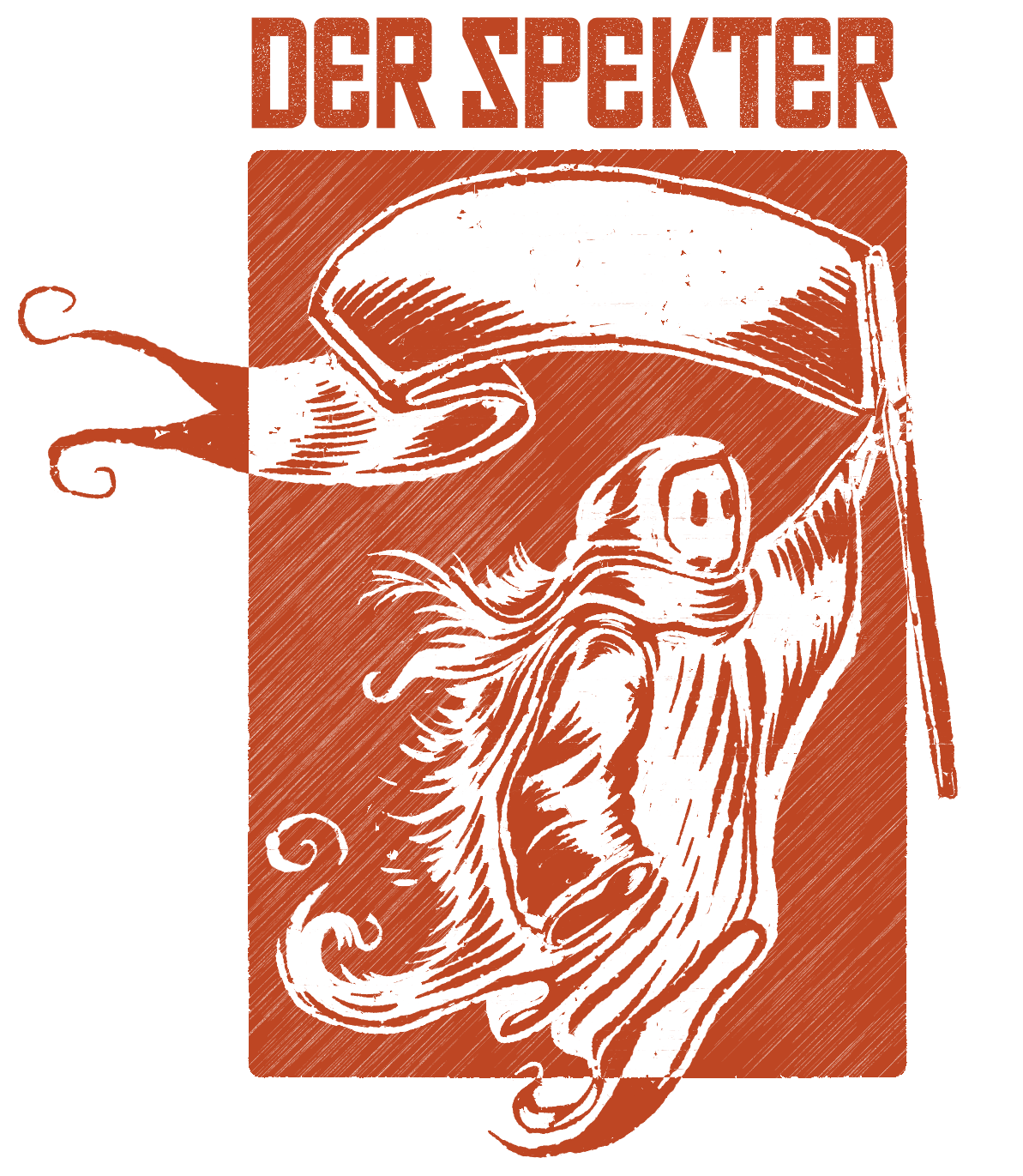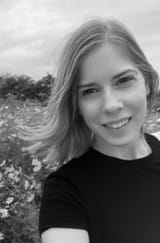Hakehillah Korea: Embracing Doikayt in Quiet Protest This Rosh Hashanah
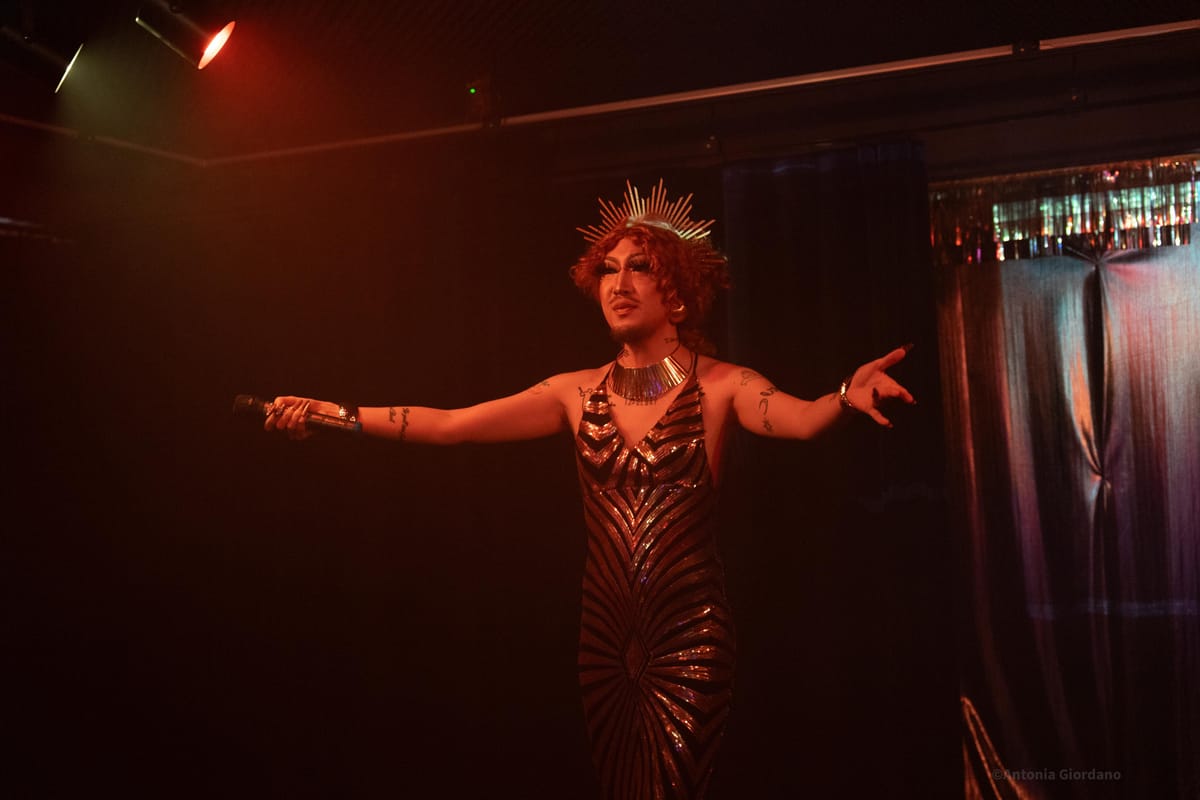
“So my parents met in a hippie cult in the 70s. I’m only half Jewish. I’m not sure I should be here.”
I say it with such dryness that you might be tricked into thinking I’m completely normal. The rabbi corrects me and says that I am completely Jewish, and I need to come to celebrate Shabbat more often. Quietly sipping bitter Israeli wine from a single-use plastic cup, I feel a deep sense of regret for having left the house. Then from across the room, I hear a loud, very Jewish-American voice. It’s Tamar, my unexpected but astrologically complimentary partner in crime since at least 2016. On the surface we have nothing more in common than being two white Jews living in South Korea. Under the surface, we are, in our own ways, revolutionaries. This was never on purpose. We traded the uncomfortable living room of the Seoul Chabad House for a cozy apartment belonging to a military contractor family every Shabbat – they were also, coincidentally, Chabadniks. Our adopted Jewish mother had her ideas about our life choices, but she loved us dearly, fed us, and provided a space to exist very Jewishly together.
At the time, my life was just about to go completely off the rails. Meanwhile, after over a year of using her apartment as our gathering place, they moved away from Korea for another posting, and we were left with a bunch of so-called “young” Jewish people with nowhere to hang out. After a few months of meeting up for coffee, we decided to call ourselves “Hakehillah Korea” and become the official “not-Chabad” of South Korea.
My journey to leading Hakehillah Korea went something like this. At age 37, I am still processing the spiritual trauma of my youth. It’s still difficult to even frame it that way. I knew from a young age that I was meant to be Jewish, but what that entailed was rarely on offer. My parents – a Jewish mom and a lapsed-Catholic dad – met in a cult during their own personal journeys away from home. It was one of those Christian cults that aren’t quite Christian in the official sense and were very focused on hippie stuff like communal living. I was never taught that Jesus was G-d, and even within the “fellowship,” as they called it, my sister and I were singled out as Jewish kids, somehow different from the others, and special, but taught nothing of substance. This was not an issue until I got older and realized that I had no idea what Judaism or Christianity even were. I felt that I belonged nowhere.
What I quickly learned was that while I felt strongly Jewish, there was nowhere for me to direct this energy. Most of my friends were some version of Christian. I had no Jewish friends (that I knew of), so I did what I had to do to fit in otherwise. I was an awkward, overly sensitive kid prone to emotional outbursts and drama (some things never change). I desperately wanted to be liked. When I found out that being Christian was the norm, and that everyone I looked to for guidance was part of that community, I molded myself into a good Christian girl.
I joined a youth center for “unchurched, at-risk” kids in middle and high school, where I was put into free group therapy every Tuesday night. It was on the surface a safe space to talk about our chaotic teenage feelings. But I felt pressured to overshare, make my stories more interesting, and participate in Christianity-based activities. I did a lot of genuinely positive things like volunteering at soup kitchens, traveling (ah the good ole mission trips where I provided nothing but my stunning personality to the local community), adventuring, and most importantly, not doing drugs. This organization has saved the lives of people I hold dear and fostered a community-centered mindset in me during my teen years, but at the same time, I was deeply wounded by this experience. I could not explore how to express my emotions without feeling like they were public. I could not explore my sexuality without a deep sense of disgust, shame, and fear. I could not explore my spirituality in a way that honored my heritage – my stubborn desire to be connected to the Jewish tradition.
Years of self-destructive habits followed me from youth group into a private Christian college in the Twin Cities, where I finally confronted my lack of faith, ironically in no small part thanks to a required Bible credit I took on Apologetics. The ‘come to Jesus’ moment I had been waiting for was to become an apostate. But clearly I felt the draw to spiritual practice. So I began to shyly attend Saturday morning services at Shul, always sitting quietly in the back. I enrolled in Biblical Hebrew and sang Shema for my class, the melody flowing from my throat from some memory I couldn’t remember forming. I read Spinoza, who inspired me to see humanity as no better than tiny shrimp swimming around the ocean, and I realized that I felt seen in this argument, that G-d doesn’t have to be defined by the framework of Christianity. It’s just that whatever we call G-d is Everything-ness (and Nothing-ness). It doesn’t matter. It all matters so much. (Precisely because it does not matter, it matters however much we make it matter.) This way of conceiving of my place in the cosmos was so different from those around me. The more I learned about Judaism, the more I learned that this amoebic understanding of G-d is the norm, not the exception. Judaism welcomes questioning.
But I still wasn’t sure I was really a Jew, because I was often confused when I entered Jewish spaces. I was so unmoored that I accidentally entered Messianic Jewish spaces more than once in my ignorance. What I did know was that I was not a Christian. I started to become different and people noticed. As I fell deeper into my outcast identity at school, breaking the school “covenant” that governed our behavior and avoiding attending religious gatherings, the friends I still had began to share their journeys of losing faith, coming out, or just feeling “off” about this whole Christian culture thing. I felt confused about why people saw me as someone to trust about these things. I just knew that they felt what I felt: lost, invisible, hopeless, but above all, so incredibly lonely in that place.
When I finally finished my degree, I knew I had to leave Minnesota. I was a mess, the economy hated all of us, and I had no idea how to separate from the Christian College Extended Universe friend group I was stuck in.
I felt strongly that I needed to leave the state, and possibly the country, so I applied for jobs everywhere and took the first international job that fell into my lap. To my dismay, it was not in Europe or South America. It was in some small town in Korea nestled in the mountains. The job was awful. I escaped after only a few months. But I was stubborn and refused to give up on my “one year working abroad” plan. After all, I had already hiked Chiaksan Mountain and fallen in love. Every time I tried to escape Korea, a door opened to a new opportunity. Several divinely placed ajummas, unnis, and friends kept me safe from harm and homelessness. I studied Korean like my life depended on it, hustled my way through missing paychecks, workplace bullying, and labyrinths of immigration bureaucracy until I finally got a break. I passed the citizenship exam in late 2013, the first step in my long journey to naturalization years later. Passing the test led to a job change that afforded me a lot more time and money. That is when I began to think, what if I did more than just light Chanukah candles by myself every year? So I finally mustered the courage to go to Chabad. I met Tamar.
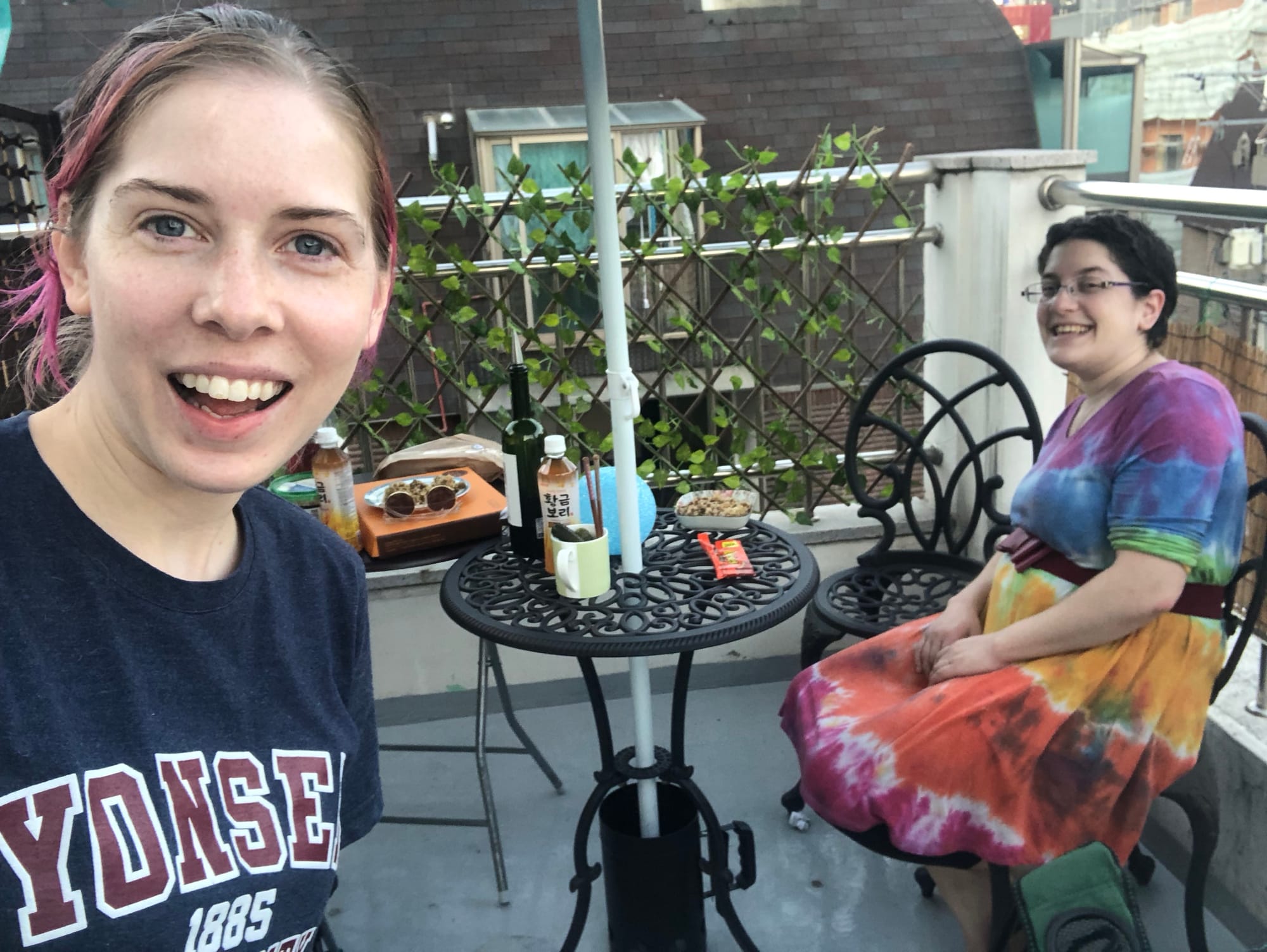
Tamar is, in many ways, the opposite of me. She grew up around so many Jews that she got days off from school for the High Holidays. Her entire family is Jewish, and many of them are rabbis or work in Jewish education. Her Judaism is very grounded in experience, in family.
My Judaism, however, was based on research and esoteric spiritual experiences. It was singing Jewish songs for music recitals and seeing the light shine in my mom’s eyes. It was staring at the portrait of my long-passed Bubbe in her wedding dress and with Papa under the chuppah. It was sitting at a Saturday service and humming along to the tunes that I knew but wasn’t sure how I knew. It was the strange emotion I felt when the Torah was first passed to me.
But as Tamar and I are both women in the LGBTQ+ club, we really had nowhere to go in Korea for Jewish community. When we built a little space from nothing but the scraps we picked up from our own life experiences in community leadership, Chabad, and our dear adopted Chabadnik mother, we noticed that we were not as alone as we thought. This is how Hakehillah Korea was born.
Hakehillah Korea was founded on the same principles to which it still adheres to more than 7 years after its founding. We still do not have funds to justify becoming an official entity. There is no tax registration (yet). All the funds raised are from our personal bank accounts, and any money we make is used to pay off money already spent, or donated to a charity. We are inclusive of every Jew. We invite and expect non-Jewish partners to participate in Judaism. We aim to live and breathe Jewish values. And finally, we are VERY, EXTREMELY GAY. (I joke, but also I am deeply serious.)
Hakehillah was the first place where I felt accepted as a Jew with no other qualifiers, and it was also one of the only spaces I have in Korea where I feel more completely seen for who I really am, rather than who I am supposed to be. Hakehillah Korea’s ‘queerness’ is a function of our hospitality. We welcome all Jews for who they are, as they are. We are a queer community, no matter the orientation of our members. We invent and reinvent our traditions constantly. There is always a connection to our people and our ancestors, and at the same time, we feel responsibility to engage in tikkun olam, and create a better world than they had. This brings me to the importance of doikayt (“hereness”) in our community.
In Korea, there are a wide variety of Jews who participate in our community. In fact, the progressive Jewish communities across Asia might be the most ideologically diverse just because Jews are extremely rare – we do not have any other choice but to stick together. For this reason, we’ve largely skirted the “Israel Issue” for years. Even among Hakehillah Korea’s current 5-person leadership, we have so many differing opinions of Zionism, from its definition to its necessity or need for abolition, that we prefer to ignore it. Being on the opposite side of Asia, there isn’t much to talk about. Israeli politics don’t affect us much in Korea.
But since October 7, everything has changed. For some reason, all the other wars and flashes of extremist violence managed to evade us here on this side of the diaspora until then. At first, it was quiet. Some reached out to see if everyone’s families were okay.
This wolf is wrapped enthusiastically in
philosemitic sheep’s clothing.
Most Koreans have never met a Jewish person, and constantly repeat tired stereotypes when the subject is brought up. Korea is only antisemitic insofar as it is deeply mono-cultural. And most ideas about Jews come from a very misinformed source – Christians who are obsessed with Israel. And these Christians, especially the evangelicals, are intensely against the concept that Jews might exist for ourselves and not for purposes of bringing about the End Times. And for those not interested in any of that, the stereotype that ‘Jews own the banks’ is often misunderstood to be a compliment. (I have received many, many apologies.) This wolf is wrapped enthusiastically in philosemitic sheep’s clothing. As an American, I have noticed the inability of many Israeli friends to recognize this for what it really is. I guess not living in the diaspora very long makes you ignorant of the nuance, and I’ve noticed that Israelis often seem desperate for the world’s approval. These factors combined make Israelis, and many other Jews, sometimes feel sympathetic to the very group of people who threaten Hakehillah Korea the most.
After Oct. 7, some of the right-wing Christians went hardcore pro-Israel in the streets, demanding release of the hostages but also making it clear that they “love” Israel and support everything that is happening. The image was concerning. The 2016-17 Candlelight Protests that ousted former President Park Geun-hye were historic, beautiful, and moving. It was all of Korea coming together to secure a better future, peacefully. People made their own signs and flags, rather than rallying behind the national flag. After Park was impeached and jailed for her crimes, a small group of fervent supporters flooded the streets waving the national flag – as well as American and Israeli flags. They are now the subject of ridicule and annoyance. While Americans usually respond with confusion or ignore it altogether, non-Korean speaking Israelis tend to initially misinterpret this political demonstration as genuine concern or support for their country. This is the context within which pro-Israel demonstrators, who were mostly from churches, waved their Israeli flags. They were of course quickly drowned out by the number of pro-Palestinian activists, still rather small in number, also in the streets outside the Israeli embassy, waving Palestinian flags.
Contrary to the ongoing government support for the IDF, Koreans have far more in common with the Palestinian cause as victims of Japanese colonization and subsequent decades of political subjugation under US military hegemony. Most Koreans immediately sympathized with Gazans for being targeted en masse, just like Koreans were subjugated, killed, tortured, and targeted for cultural erasure under colonization. The situation for Hakehillah Korea was chaotic. From my perspective as an American-Korean, Jewish, very politically left woman who leads a Jewish community that obviously has Israeli participants, I was overwhelmed. I stayed quiet. I had a responsibility, but to do what? What would make a real impact beyond feeling self-righteous?

We continued to watch the news in horror. Many Jewish organizations worldwide had made their stance clear. So-called progressive organizations that had helped us get established began posting things online that implied that any criticism of Israel was antisemitism. They began to post what looked like propaganda for the state of Israel. It felt like we were also expected to fall in line, to provide unquestioning support for the state of Israel as a function of our grief over the attacks.
Only two short months after October 7, we hosted our Chanukah party. Chanukah is the unofficial birthday of Hakehillah Korea. Our party was great, as always. We made at least a thousand latkes, Korean-style fried veggies and tofu, drank wine and sipped on Russian tea late into the night. Our candle lighting was so beautiful and such a fire hazard. How wonderful it was to see overwhelming beauty when the world is falling apart.
Many of us were feeling alienated from our own Jewishness due to the rhetoric of the greater Jewish community, myself included.
But the mood was already ruined. Multiple Jewish sources were publishing articles about how winning wars and Jewish supremacism (re-worded as “Jewish Pride”) are the true meaning of the holiday. Comparing Israel to “light” and Palestine to “darkness.” We had to ban a member from coming to the party because of their anti-Arab comments. It was tense. Many of us were feeling alienated from our own Jewishness due to the rhetoric of the greater Jewish community, myself included.
So I decided to make a speech – something that was more than a simple explanation of the holiday. I rebuked the black-and-white narrative, and I spoke truth into the darkness of blind ethno-nationalism. I cried. But when it was over, I was embraced by our community. I broke the silence, saying what had remained unsaid for too long. It didn’t matter what varying political views or national backgrounds we had. We all agreed that the Jewish people needed to survive the nationalism, war, hate, and violence. Even when we were among the perpetrators.
As time moved on, we made more “radical” decisions. We rejected funding from an organization related to the Israel Ministry of Diaspora, Hakhel, which had helped us with small amounts of money and connected us with other small Jewish communities throughout the years. When I visited Israel with them in 2019, I saw the apartheid for myself. This organization introduced me to people who didn’t just dream of a better future – they rejected the notion that there could never be peace. They inspired me to believe it is possible, too. If we want peace, we must do something.
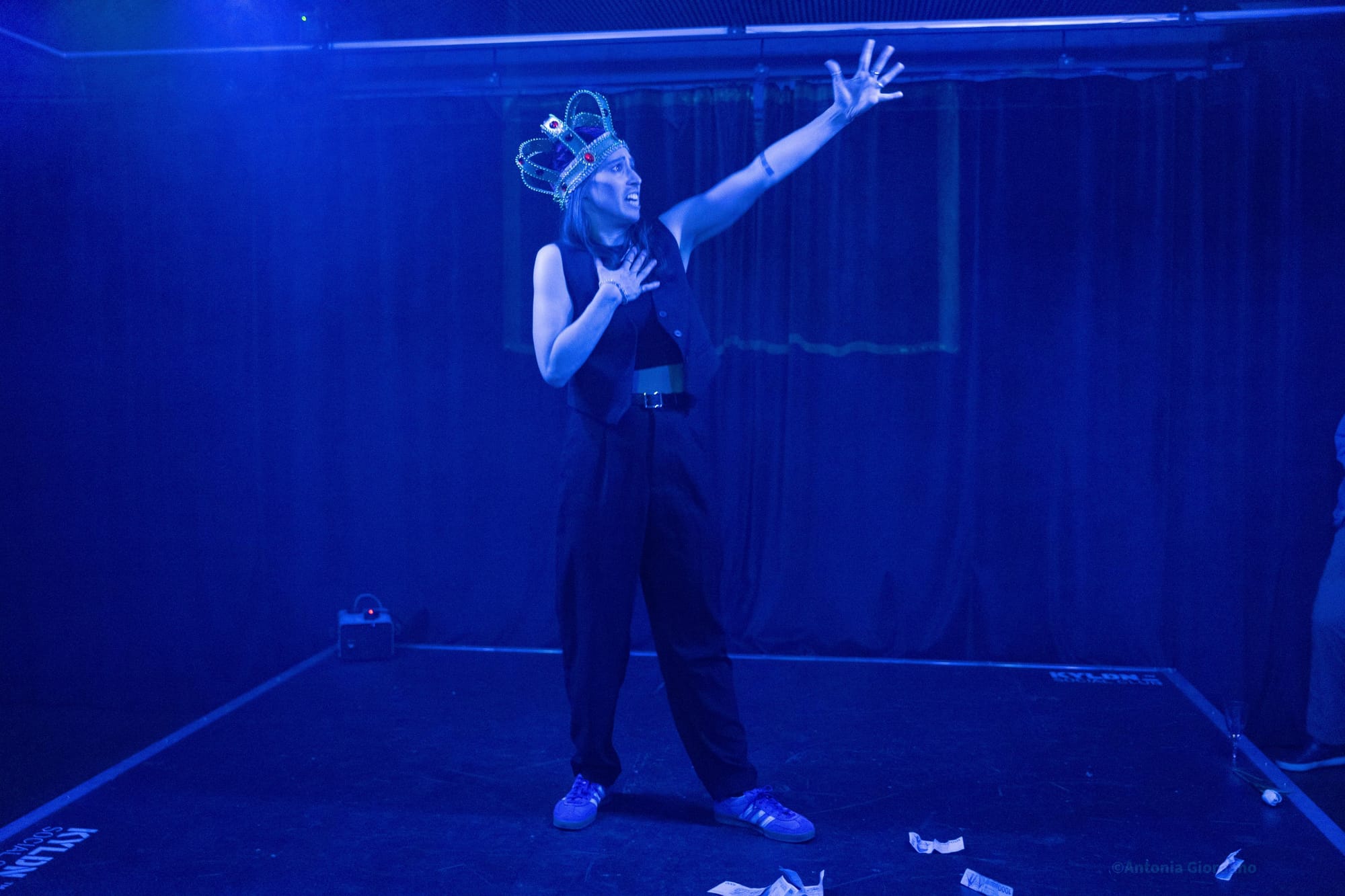
As Purim approached, we decided to fundraise for World Central Kitchen rather than a local charity. As we planned our Purim spiel, there was a lot of pressure on both sides of our collaboration with a local drag troupe to perform the correct amount of activism for or against the state of Israel. On the Hakehillah Korea side, a couple of Israelis left the Jewish group chat out of anger that we would dare raise money for innocent civilians to eat food in Gaza. Our partner organization’s side faced criticism for supporting an organization that also prepared meals for Israelis who had lost their entire communities on October 7. This is the world we are in, a world that reduces nuance and humanity to war factions that can easily be reproduced in Instagram infographics.
While we are always doing the work of balancing, I consider our decisions to be not “in the middle” of this ideological conflict. We clearly have taken a side – the side of humanity, the side of love, and the side of peace. Sometimes this means calling out the crimes of Israel, shining light on the suffering of everyday people, and drawing connections between our history of genocide and current events. It means fighting for the spiritual survival of Judaism.
By including us in their rhetoric, Israel has inadvertently invited all Jews into the discussion, and as it has done so, many have concluded that we don’t need Israel after all.
Our community, and many others across the globe, are uniquely positioned in such a severely unsupported corner of the diaspora that we can basically do whatever we want. I cannot argue that Hakehillah Korea is Zionist or anti-Zionist because we do not concern ourselves with these labels. We are primarily concerned with our own people. At the same time, we cannot ignore the evil being done using our religious symbols and vocabulary. By including us in their rhetoric, Israel has inadvertently invited all Jews into the discussion, and as it has done so, many have concluded that we don’t need Israel after all. And for those, like me, who have a strange, internal pull towards the land of Israel, it is imperative to use this desire for our own sense of place to strengthen our own communities so that we can feel secure without participating in the oppression of others.
As we are in the month of Elul in preparation for High Holidays, there is a lot to think about. There is a concept in the world I inhabit of modern astrologers and tarot readers that when you align with your destiny, sometimes you lose everything, but then you discover that this new level of life opens new potential and new opportunities. You will be rewarded for shedding old, destructive tendencies with intention. Hakehillah Korea has always been intentional in our decisions, words, and structure. We continue to find our people, our purpose, and deepen our commitment to doikayt in a very unexpected country, at an important turning point in Jewish history.
